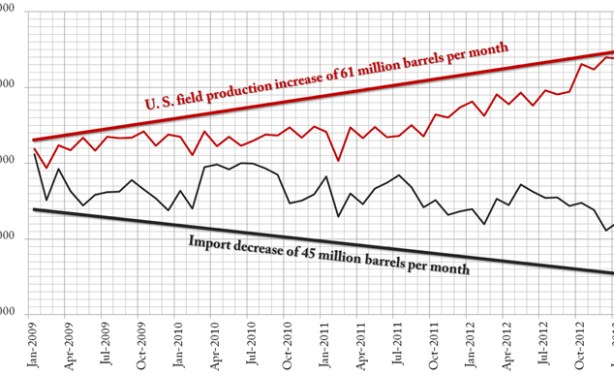The search for alternative energy by the Barack Obama administration in the United States of America (USA) has begun to take a toll on Nigeria’s crude oil export as the US for the first time failed to import a single barrel of crude oil from Nigeria.
This troubling scenario experienced in the month of July, according to industry watchers, may spell doom for the Nigerian economy.
Obama’s vigorous search for alternative energy to drive the world’s largest economy poses grave dangers for Nigeria whose economy is highly dependent on revenue from oil.
Nigeria used to be the fifth largest exporter of crude oil to the US.
However, experts said despite declining revenue, depleting foreign reserves and pressure on the exchange rate, Nigerian economy remained “robust enough to withstand the shock waves hitting the economy.”
While US crude imports rose by 569,000 barrels per day in July, imports of Nigerian crude fell to zero for the first time.
Data obtained from the US Energy Information Administration during the week showed that US imports rose to 7.623 million bpd up from 7.054 mbpd in June.
Despite being at their highest since December 2013, imports are down from 8.058 mbpd in the same month a year ago.
Imports from Nigeria fell to zero in July, down from 89,000 bpd in June, all of which had gone to the US Atlantic Coast.
Nigeria had remained remarkably upbeat despite lower-than-expected revenues, low foreign investment and a weak infrastructure base.
While President Goodluck Jonathan has rolled out a slew of robust, but seemingly disjointed plans in several sectors of the economy, his government has failed to articulate a stimulus package to deal with the current public revenue crisis and record unemployment, or to weld the plans into a coherent whole.
Reports indicated that before now, the US has reduced crude imports from Nigeria by 91 per cent, putting the country’s crude exports in disarray.
The US, which was hitherto the biggest importer of crude from Nigeria with over one million barrels per day, early this year imported an average of 100, 000 bpd till June 2014.
Data obtained from the Nigerian National Petroleum Corporation (NNPC) revealed that by the end of last year, the US dropped to the 10th highest importer of Nigeria’s crude, with 1.438 million barrels.
Specifically, Nigeria exported 1.438 million barrels of crude oil to North America by December 2013, down by 15.111 million barrels in December 2012.
Obviously, Nigeria has started witnessing the negative effect of shale oil exploration in the US and other parts of the world. Prior to July, the country’s crude oil export to North America had dropped by 91.31 per cent in one year.
North America accounted for 22.19 per cent of Nigeria’s total crude export by December 2012, but it dropped to 2.23 per cent by December 2013.
According to an NNPC report, “Prior to the decline, the US was the highest buyer of Nigeria’s crude, purchasing 14.279 million barrels in December 2012, thereby accounting for 19.15 per cent of Nigeria’s total crude export and 86.28 per cent of total crude export to North America. By 2013 end, the US dropped to the 10th highest importer of Nigeria’s crude.
The NNPC report stated that by December 2013, Europe was the highest importer of Nigeria’s crude, accounting for 47 per cent of Nigeria’s total export, followed by Asia and Far East, accounting for 26 per cent, while Africa accounted for 12 per cent.
The report stated that South America accounted for 10 per cent of Nigeria’s total crude export, while Oceania/Pacific and North America accounted for three per cent and two per cent respectively.
Also, India emerged the highest importer of Nigeria’s crude in December 2013, with 13.086 million barrels, followed by the Netherlands with 9.866 million barrels, and France 4.497 million barrels.
Nigeria exported 4.869 million barrels of crude to Brazil in the period under review, 4.6 million barrels to Spain and 3.895 million barrels to South Africa.
Nigeria, Africa’s biggest crude exporter, depends largely on crude proceeds to service over 85 per cent of its budget.
The present scenario, no doubt, compels President Jonathan and his economic team to roll up their sleeves and come up with a way out for the country’s economy.
By Chika Izuora with Agency Report










